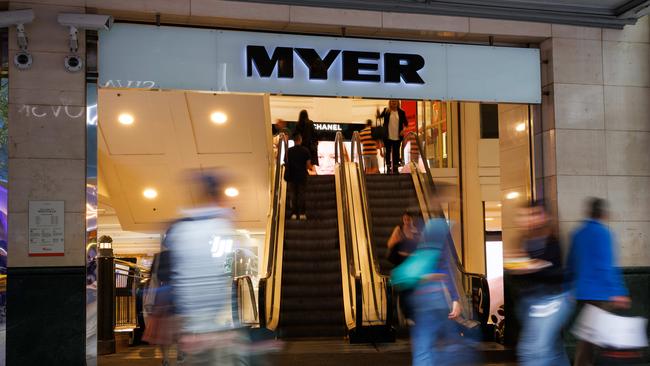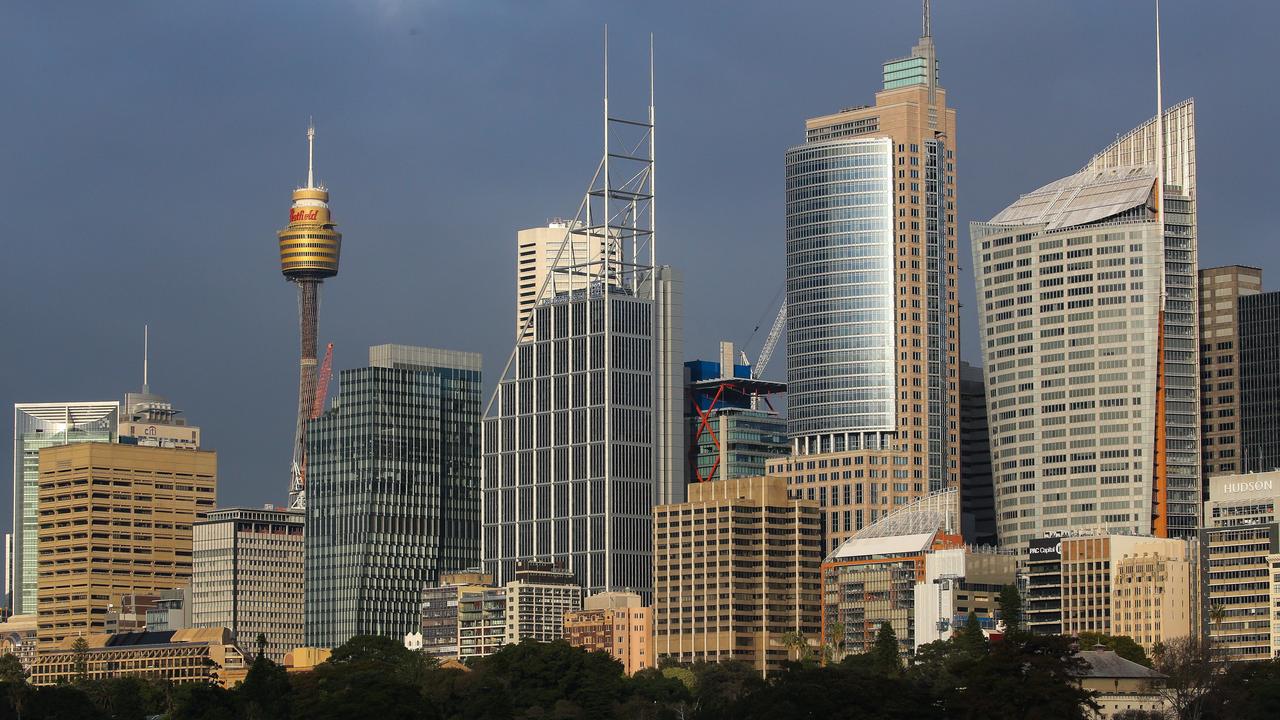Myer and Solomon Lew’s Premier Investments report poor retail conditions ahead of merger vote
The department store chain and Solomon Lew’s Premier Investments say a weak economy is behind poor recent sales as shares tumble ahead of a merger vote next week.

Business
Don't miss out on the headlines from Business. Followed categories will be added to My News.
Sales at Myer were softer over the 22 weeks to December 28 as cost of living pressures and broader belt tightening impacted the department store chain throughout its busiest period of the year, which has also impacted billionaire Solomon Lew’s Premier Investments.
A slowdown in sales at both companies comes ahead of a crucial vote by shareholders next week of both entities to sign off on an agreement which will see Myer merge with a big portfolio of clothing brands owned by Premier Investments.
Both companies have been heavily sold by investors, with shares in Myer down by 17.9 per cent to 94c at noon, while Premier Investments was down 15.5 per cent to $27.97.
Myer told the market on Monday for the 22 weeks to December 28 comparable sales were in line with the prior corresponding period (PCP), while total sales were approximately $1.59bn, down 0.8 per cent on PCP.
The result was affected by the temporary closure of the Werribee store between February 15 and November 29.
Group online sales rose 2.8 per cent and represented 22 per cent of total sales in the period. Operating gross profit was down $15m on the prior period to about $560m, while earnings before interest and taxes (pre-AASB16 basis) was $48m, a decrease of approximately $16m.
Myer executive chair Olivia Wirth said the company’s year-to-date financial performance has been impacted by macroeconomic conditions as well as increased costs and ramp-up complexity at the new National Distribution Centre in Ravenhall, which has delayed the realisation of expected benefits.

“In challenging trading conditions for the retail sector driven by a tough macroeconomic environment, Myer’s year-to-date sales performance has been stable,” she said.
“Trading during last year’s key sales events including Black Friday was strong, but consumers remain cautious and focused on value given persistent cost-of-living pressures.”
The group is buying Premier Investments’ Apparel Brands business, which indicates Premier’s retail businesses, including Apparel Brands, have also been affected by the challenging trading conditions.
The Solomon Lew-controlled group reported retail conditions have remained challenging through the first half with customers continuing to experience cost of living pressures across all of its global markets.
Premier expects its Apparel Brands business, consisting of Just Jeans, Jay Jays, Portmans, Dotti and Jacqui E will deliver global sales in the range of $405m to $412m and underlying EBIT (pre-AASB16) in the range of $31m to $35m, $16m to $20m less than the same period a year ago.
Premier expects the percentage gross margin for the Apparel Brands business to be broadly flat against the prior corresponding period.
Documents leaked to The Australian last month showed sales from its three maiden stores are trading 61.6 per cent below budget for its popular sleepwear brand Peter Alexander in the UK.
The first half is still continuing with back-to-school and January sales yet to conclude, but Premier Retail’s underlying earnings before interest and taxes (pre-AASB16) is likely to range between $160m and $165m — lower than its $204.9m in the prior period.
The merger between Myer and Premier’s apparel brands will add 719 stores to Myer and a portfolio of labels which range from those appealing to young adults in Jay Jays and Dotti to older women with Jacqui E.
Mr Lew will personally control about 27 per cent of the bigger Myer group if the transaction is approved by shareholders, and Premier will focus on growing its Peter Alexander sleepwear and Smiggle stationery brands.
The enlarged Myer will have 17,300 staff in Australia and New Zealand and annual sales of more than $4bn.
Originally published as Myer and Solomon Lew’s Premier Investments report poor retail conditions ahead of merger vote





